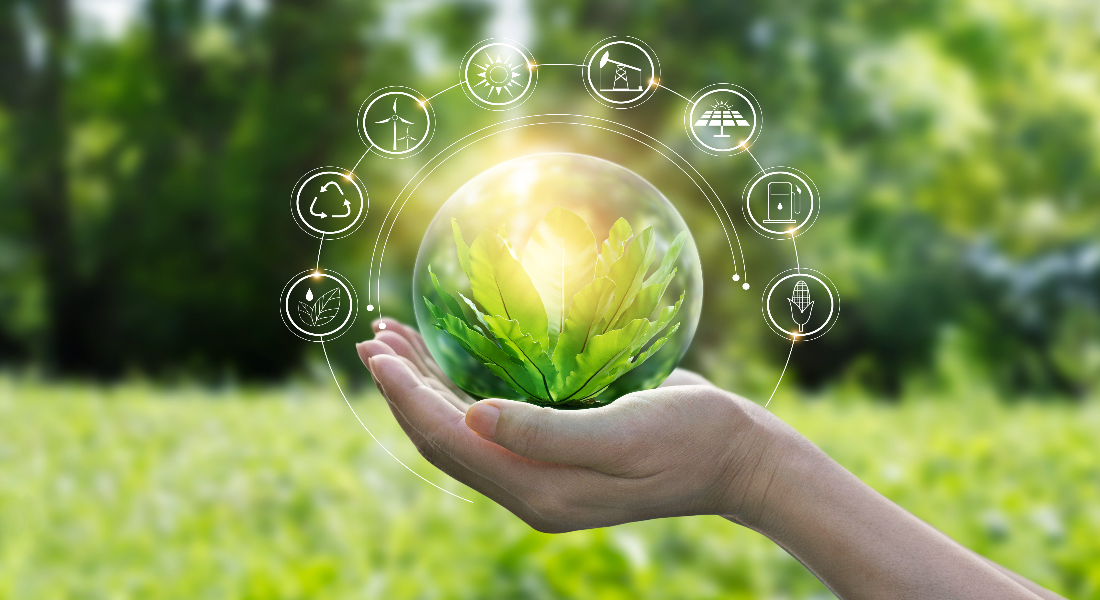OPINIÃO
Why the green economy is important to Ghana – and how certification marks contribute to it
The United Nations Environment Programme (UNEP) defines the ‘green economy’ as “the low carbon, resource efficient and socially inclusive economy”. The Organisation for Economic Co-operation and Development states that: “Green growth means fostering economic growth and development while ensuring that natural assets continue to provide the resources and environmental services on which our well-being relies.” The Green Economy Coalition, in turn, considers that the green economy is “an economy that provides better quality of life for all within the ecological limits of the planet”. Albeit variable, these definitions share the same vision regarding the key issue: the green economy conciliates environmental sustainability, economic objectives and social wellbeing.
In view of the global climate emergency, the green economy appears to be the best alternative to the current dominant economic model and is indispensable to achieving sustainable development, especially in developing economies such as Ghana.
Ghana’s fundamental environmental legislation includes the National Climate Change Policy, the National Environmental Policy, the Environmental Fiscal Reform Policy and the National Climate Change Adaptation Strategy, among many others. Nevertheless, the country experiences various environmental problems that prevent the achievement of economic development goals, and there is evidence that it is being affected by natural disasters due to global climate change. For instance, despite having abundant natural resources permitting the attainment of sustainable development, Ghana has suffered from dramatic forest degradation and deforestation, and has one of the highest costs of environmental degradation in the world. In order to combat these terrible consequences and to encourage the green economy transition, the country is being supported by various international programmes and projects, including the UNEP green economy programme, Switch Africa Green, the Green Climate Fund and the Sustaining Competitive and Responsible Enterprises programme.
However, to be effective and durable, such efforts must be made by all economic operators, both public and private, national and international. As such, trademark rights are essential legal and communication tools for the country, both to attract foreign investors and to sell their products on international markets.
Under Ghanaian trademark law, there are three methods that economic operators can employ to distinguish their goods or services as being eco-conscious.
The first is to register traditional marks. This method is widely used; however, there is a risk that the terms ‘eco’, ‘green’ and ‘sustainable’ will be considered as descriptive by the registrar, which will challenge the registration.
The second is to register collective marks used to promote sustainable development goals. Nevertheless, the number of these marks in Ghana remains insufficient to have a considerable impact on the economy of the country.
The third way to promote and support the mark system’s transaction into the green economy is through certification marks. Certification marks are registered through the Ghanaian Patent and Trademark Office. The rules for governing the use of such marks are established by the owners, approved by the minister and open to public inspection. These exigencies may seem excessive; however, it aims to prevent the registration and use of unregulated green marks that falsely claim to be eco-friendly.
The economic success of products displaying certification marks relies on consumer awareness and on their willingness to pay more if they know that a product is more environmentally friendly. Even if we can anticipate mitigating effects on local consumer behaviour, certification marks offer great opportunities for stakeholders in Ghana that produce a large number of products – in particular, natural or agricultural products – to be sold in international markets. The Fairtrade certification provides one such example. Through the Fairtrade mark certification, Ghana, which is the world’s second largest producer of cocoa, has been able to respond to the demands of the global chocolate industry’s biggest players, including Ferrero and Hershey, which have expressed their commitment to achieve a sustainable cocoa sector by the year 2020.
The global wood industry is also economically important to Ghana. Thus, the Forest Stewardship Council™-accredited Forest Management certification plays an important role in attracting international investors and buyers to the country. The Roundtable on Sustainable Palm Oil certification is another certification mark that enables Ghanaian products to be competitively sold in the international market.
The green economy transition is a real challenge for developing countries that are facing significant economic pressures to develop their country and a real temptation to follow the dominant economic model. However, economic growth is also possible through the green economy model and certification marks are a valuable tool to develop countries under this alternative model.
This is a co-published article, which was originally published in the World Trademark Review (WTR).
Saiba mais


